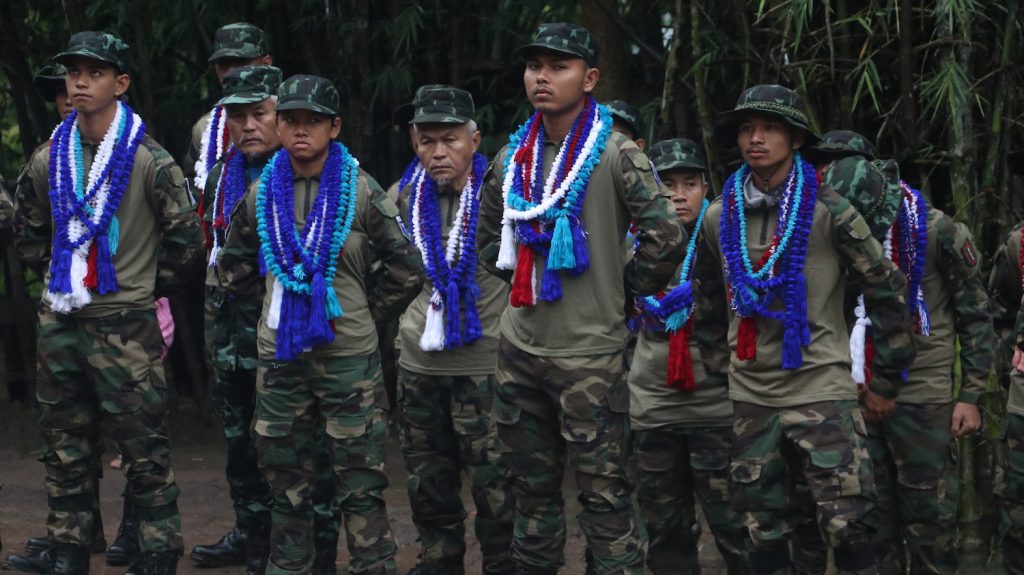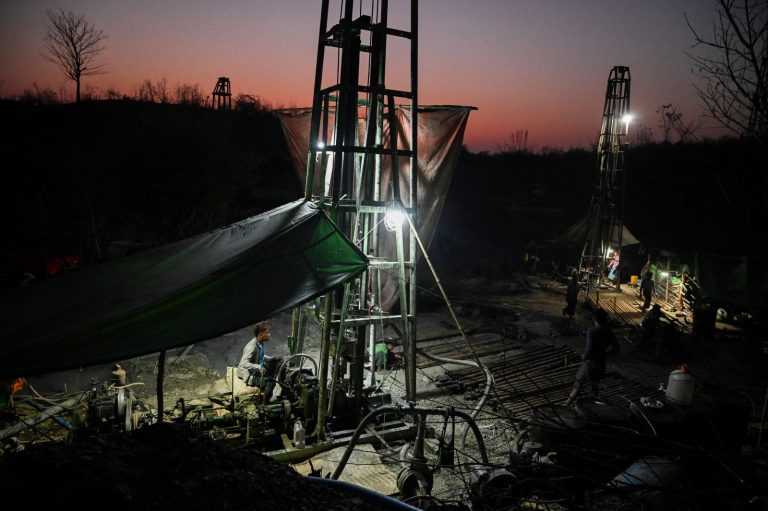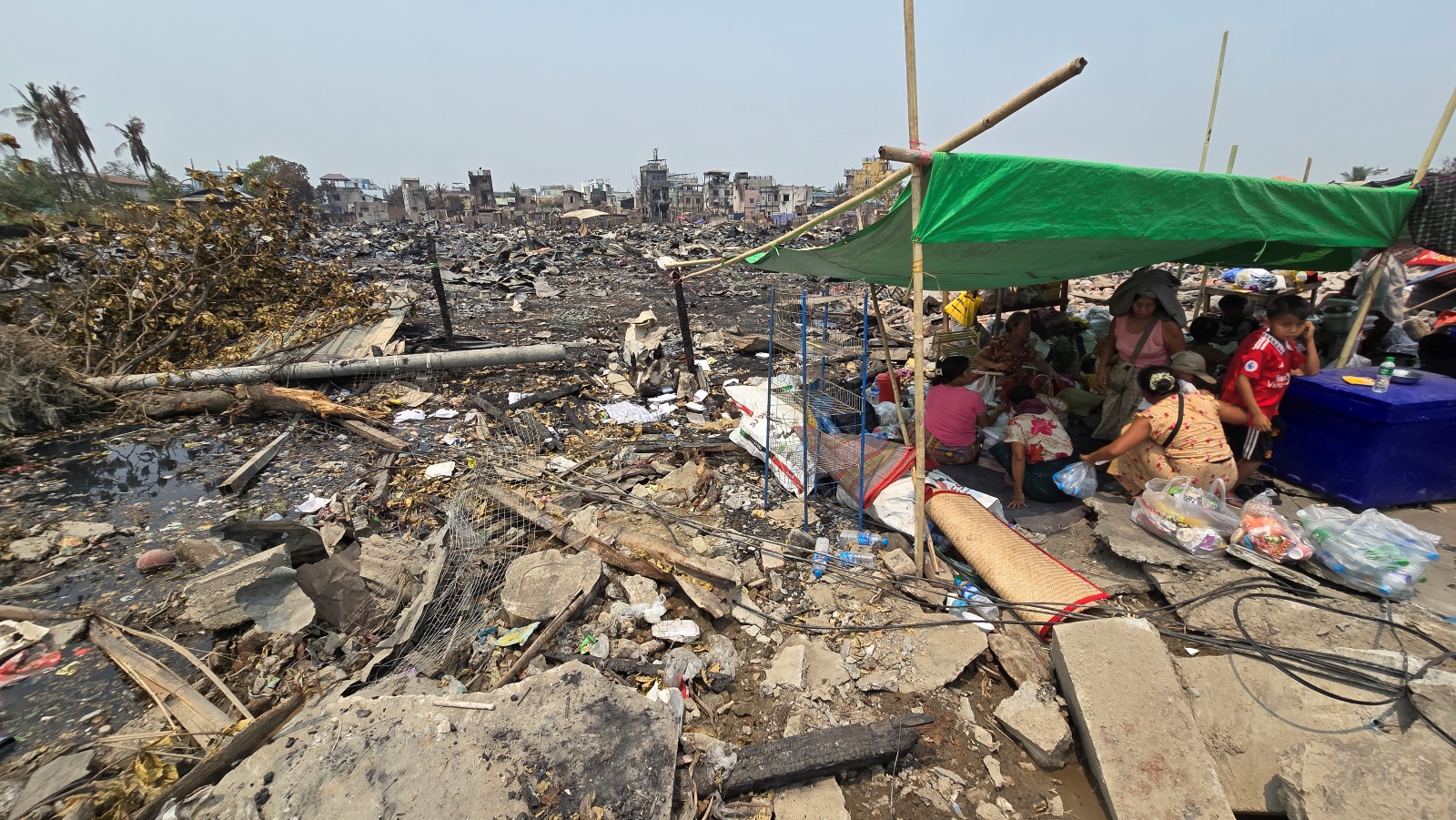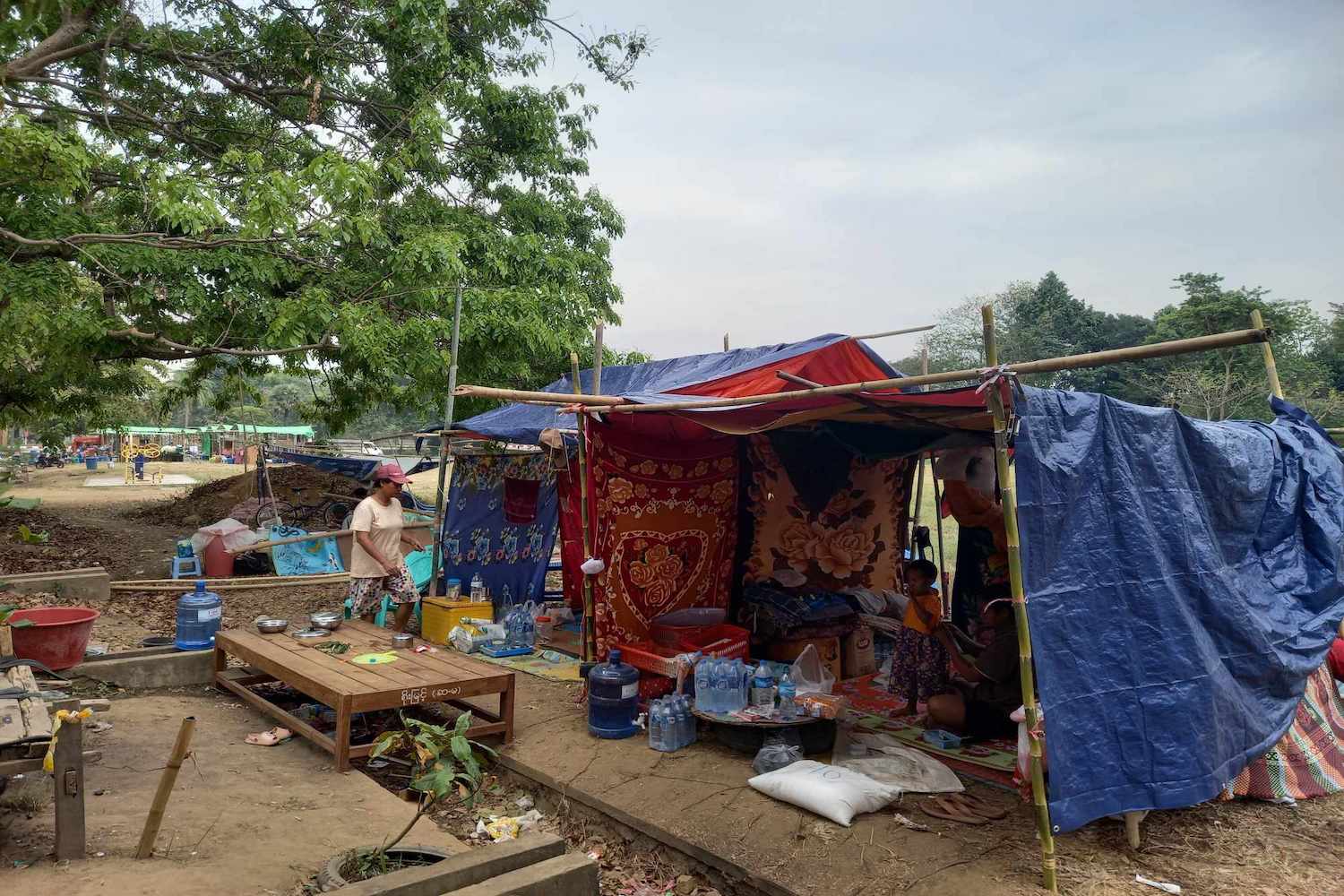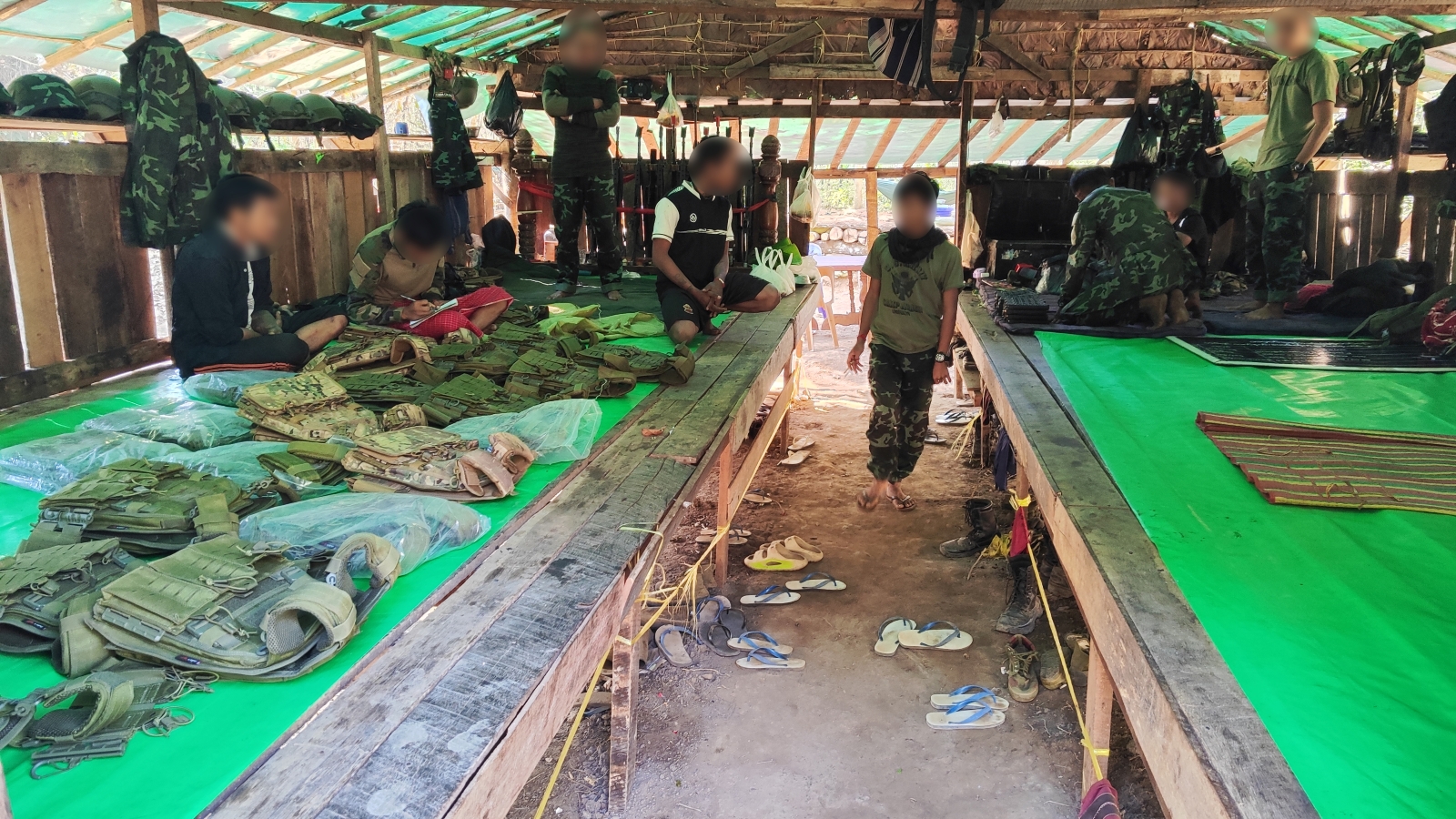Officers implicated in two massacres of unarmed prisoners have split from the Karen National Union to form the Kawthoolei Army, with critics saying the group lacks ethics and the schism undermines the revolution.
By FRONTIER
As he had done for many years, private Ko Saw attended a ceremony marking Karen Martyrs’ Day on August 12, which commemorates the 1950 assassination of Saw Ba U Gyi, the first president of the Karen National Union. As usual, the singing of the Karen national anthem was followed by a flag raising ceremony, left at half-mast to salute fallen Karen martyrs, while a wreath was laid at a monument for the dead.
However, there was a significant difference between the ceremony 29-year-old Ko Saw attended this year and the one he attended in 2021 as a member of the Karen National Defence Organisation, one of the two main armed groups under the KNU.
This year’s ceremony was not organised by the KNU, but by the newly formed Kawthoolei Army, a breakaway group founded in mid-July by the controversial Brigadier-General Nerdah Bo Mya. The son of late General Bo Mya, who chaired the KNU from 1976 to 2000, Nerdah Bo Mya served as commander-in-chief of the KNDO until he was ousted for allegedly overseeing the massacre of 25 unarmed prisoners.
“Last year I was a member of the KNDO and now I am a member of the Kawthoolei Army. Although the name of the group is different, the revolutionary process of continuing to fight the military dictatorship is the same,” Ko Saw said.
Saw’s entire battalion, known as the Lion Battalion, led by Captain Saw Eh Say Wah, changed allegiance and followed Nerdah Bo Mya when he formed the Kawthoolei Army. A one-armed man, Eh Say Wah’s remaining forearm is tattooed, and he wears a distinctive gauge-style earring. So, there was no mistaking him when a video emerged in June showing Eh Say Wah presiding over the execution of at least three unarmed prisoners captured during fighting over the Ukarithta military outpost in Kayin State.
“I have no objection to the fact that our entire battalion decided to follow Brigadier-General Nerdah Bo Mya as our leader because we believe in him. From my time in the KNDO, I came to know his leadership very well, so I trust him,” Ko Saw said.
The term “Kawthoolei” refers to the general Karen homeland, which includes areas outside of Kayin State where large Karen populations exist, like parts of Tanintharyi, Bago and Ayeyarwady regions and Mon State.
When Frontier attempted to call Ko Saw for a follow-up interview, another man answered his phone and said Ko Saw had been killed during fighting with the military in Kawkareik Township on August 24.
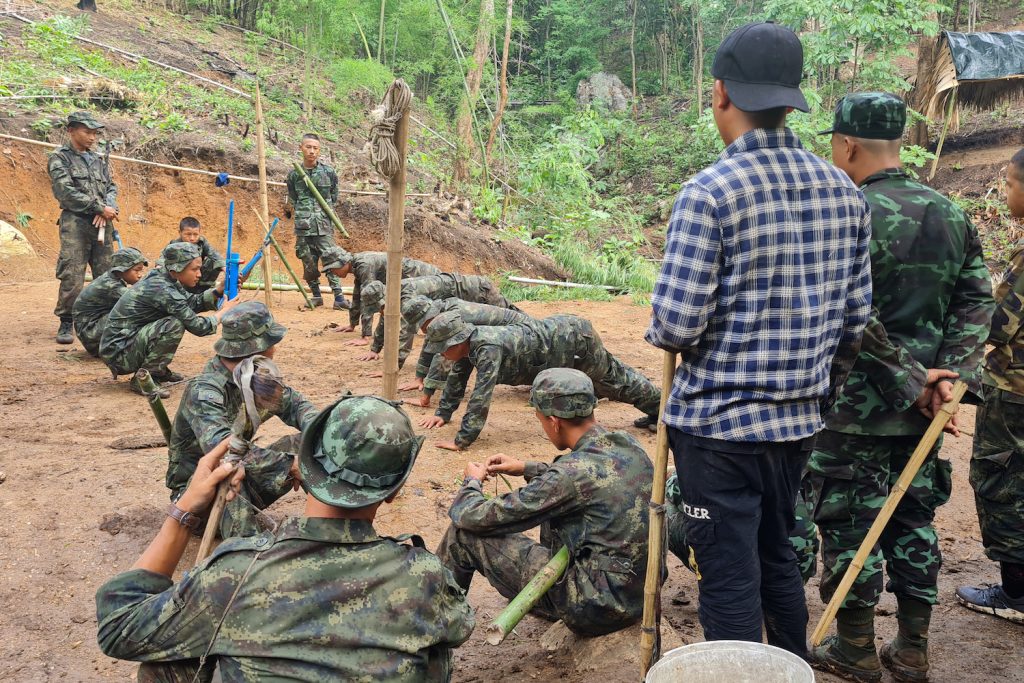
A question of ethics
At the heart of the schism is a disagreement over how to treat prisoners of war. The KNU suspended Nerdah Bo Mya in July of last year, pending an investigation into the killing of 25 men working on a bridge-building project in the Waw Lay area of Myawaddy Township on June 1, 2021. Nerdah Bo Mya did not deny the accusations, but claimed the men were “spies” for the Myanmar military, while the junta claimed they were civilian construction workers.
Domestic and international rights groups decried the killings, pointing out that even if they were spies, executing prisoners violates the Geneva Convention. Nerdah Bo Mya refused to accept his suspension or cooperate with the investigation, continuing to lead troops despite the controversy. In January of this year, the KNU announced his formal expulsion, appointing Major-General Saw Shee Lay to take over as commander-in-chief of the KNDO.
When Nerdah Bo Mya announced the creation of the Kawthoolei Army on July 16, the KNU, KNDO and Karen National Liberation Army were quick to issue statements condemning the move. A KNU statement on July 20 said Nerdah Bo Mya “defied the KNU’s judicial process” and accused him of disrupting another investigation into the “extrajudicial killings of prisoners of war”, referencing the Ukarithta killings.
“Kindly be informed that his actions are no longer relevant to us,” the KNU statement says.
Eh Say Wah declined to comment on the Ukarithta incident, only saying the Kawthoolei Army would not “harm innocent civilians” and refused to address any comments made by the KNU.
Beyond the KNU, the split has also caused some divisions among newly formed anti-coup groups. After the military seized power in February 2021, peaceful protests were met with brutal massacres, leading many young people to take up arms in an attempt to overthrow the new regime. Mostly known as People’s Defence Forces, many of these groups have collaborated with more established ethnic armed groups, like the KNU.
Some of these groups, like the Cobra Column, have sided with the KNU in the split, while others like Venom Commando and Lion Battalion have joined the Kawthoolei Army. Other groups that joined Kawthoolei Army include a KNDO special battalion based in Tanintharyi Region led by Captain Kola Po and a breakaway group from the Democratic Karen Benevolent Army led by Major Sa Lone.
“A soldier must understand the laws of war and the ethics of war. If a soldier commits a war crime, he must be punished,” said Bo Ta Baw, leader of the Cobra Column, a joint-force PDF group that operates under the KNU’s command. “I have no reason to support or accept the newly formed Kawthoolei Army,” he added, accusing Nerdah Bo Mya of only forming the group to avoid punishment for his crimes.
Ko Myo Thura Ko Ko, a member of Cobra Column’s information team, said the group will always follow the Geneva Convention as a contrast to the military’s rampant human rights abuses. Across Myanmar, the military has been accused of massacring civilians and torching entire villages as it attempts to quash opposition to its rule.
“When we fight a dictatorship, we can’t become a military dictatorship ourselves. This revolution is happening because we don’t like the fascist system, so we must not become fascists,” Myo Thura Ko Ko said.
But to some, the Kawthoolei Army’s disregard for the rules of war is appealing.
A member of the Kawthoolei Army, who requested anonymity, praised Nerdah Bo Mya as a “strong and decisive leader” who is “essential” to the revolution’s success.
“In these cases, we had to eliminate the fascist soldiers,” he said, referring to the Waw Lay and Ukarithta killings. “On the battlefield, you have to understand that if you don’t kill them, they may kill you,” he said.
In the Ukarithta killing video, viewed by Frontier, none of the executed prisoners appear to pose any threat to the resistance forces. Four men are seen lying on the ground, with their hands behind their backs, as Eh Say Wah and others repeatedly strike them. Finally, another soldier shoots three of them at close range, including one who was already wounded and motionless. It is not clear from the video what happened to the fourth prisoner.
But the anonymous Kawthoolei Army soldier seemed more concerned about the video leaking than the killings.
“I’m not sure how the video got leaked, these are things that shouldn’t be recorded, but it is not right for them to be punished for this,” he said.
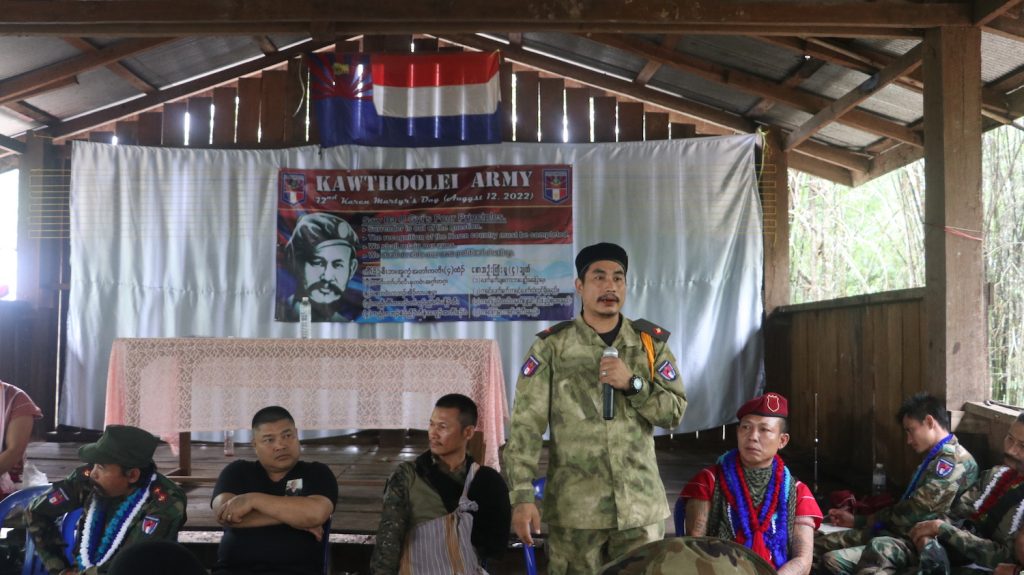
NCA and bureaucracy
Nerdah Bo Mya has also taken advantage of some internal tensions within the KNU, trying to appeal to those who are frustrated with the central leadership. The July 16 statement announcing the creation of the Kawthoolei Army said it would not be beholden to the Nationwide Ceasefire Agreement with the military, which the KNU signed in 2015.
Nerdah Bo Mya said he created the Kawthoolei Army because he had lost confidence in KNU leadership, seemingly referencing KNU chair General Mutu Say Poe, who has repeatedly drawn controversy since the coup. In May 2021, he seemed to reject armed resistance, saying people should not use violence to solve “political problems”. And in March 2022, he attended an NCA signatory meeting in Chiang Mai, Thailand.
Mutu Say Poe’s stance on the NCA was controversial even within the KNU, with many expecting him to be replaced during the next congress, which has been repeatedly delayed by COVID-19 and the conflict.
“I can’t understand why people say they want to follow the NCA path,” said youth activist Saw Albert Cho in August. “Right now, various KNU brigades are fighting military council troops. It is obvious that the opinion of some central committee members does not represent the entire organisation.”
Albert Cho agreed that KNU leadership has shown some “weakness” but said officers like Nerdah Bo Mya should seek reform “from within the mother organisation” rather than starting a new group.
“This separation caused the existing [Karen] strength to weaken,” he said.
Major Saw Win Myint, leader of the Venom Commando group, told Frontier the KNU’s bureaucracy had become too bloated and could no longer efficiently manage military affairs.
“Now that General Nerdah has established the new army, I don’t have to wait for orders from above. I believe that I will be able to work under the direct orders of General Nerdah and do more for the revolution than before,” he told Frontier.
But Win Myint also sought to downplay the split, saying the Kawthoolei Army’s goal is to “fight the military council and liberate the people”. “Our forces might be different, but we have the same goal,” he said.
But the KNU says Nerdah Bo Mya was a problem because he failed to follow even basic internal rules. KNU spokesperson Padoh Saw Taw Nee said that after Nerdah Bo Mya was appointed commander-in-chief of the KNDO in 2013, he frequently acted without approval from the central organisation. For example, he would travel abroad without permission, fundraise without oversight, and make public speeches critical of the KNU.
“The worst thing he did after going abroad was to appoint people to positions in the KNDO of his own accord. Some pastors were appointed as lieutenant colonels in the KNDO without our organisation even knowing,” Taw Nee said.
Taw Nee said KNU officials treated Nerdah Bo Mya like their own son because of their respect and love for his father and were much more tolerant of his transgressions than they would have been for other soldiers. But the massacre of 25 people, which Taw Nee said included civilians, was something they couldn’t ignore.
“In conflict situations, we have to follow international humanitarian law so that war crimes involving civilian targets do not happen,” Taw Nee said, adding that Nerdah Bo Mya refused to cooperate with KNU committees and courts on the matter.
Taw Nee also said naming the breakaway group the “Kawthoolei Army” was another underhanded move by Nerdah Bo Mya.
“There are many Karen armed groups in the KNU area. Even though these groups are not under the same chain of command, it was decided that they would all wear the Kawthoolei Army logo on the chest pocket of their uniforms,” he said, claiming Nerdah Bo Mya then stole the name.
“Without any consultation, he used a decision made by the organisation for his personal benefit.”
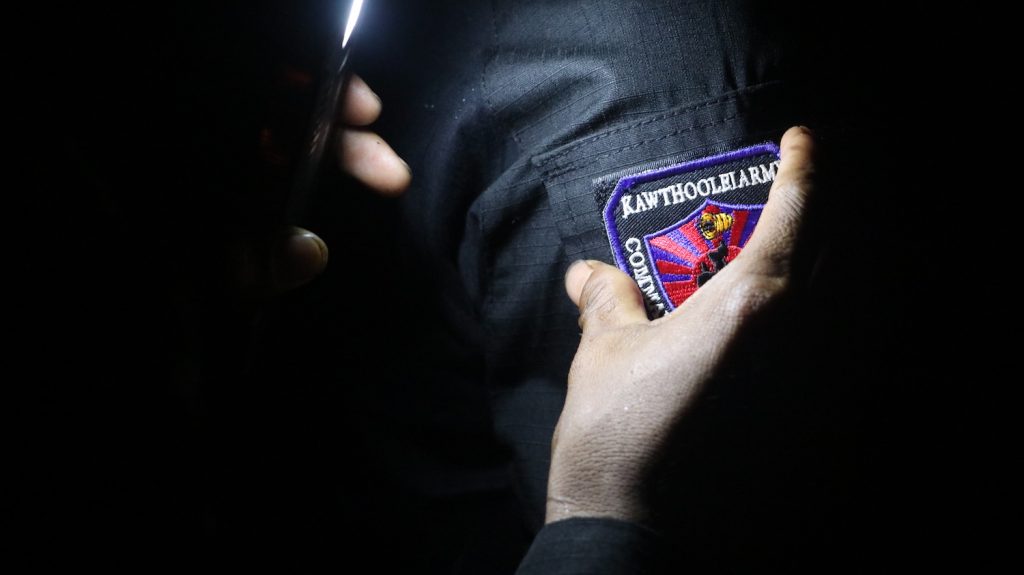
Undermining the Karen cause
The Kawthoolei Army is far from the first Karen splinter group. In 1994, the Democratic Karen Buddhist Army split from the KNU, alleging discrimination by the predominately Christian KNU. The DKBA would later split again with one faction coming under the Tatmadaw’s command as a Border Guard Force, while the other signed the NCA. Then-commander of the KNLA’s Brigade 7 walked out in 2007, forming the KNU/KNLA-Peace Council.
Karen National Democratic Party chair Mahn Aung Pyi Soe spoke out against the creation of the Kawthoolei Army, warning it will only cause more division in an already fractured landscape.
“They must listen to the opinion of the Karen people and make adjustments to find the best solution,” Aung Pyi Soe he told Frontier. “They are working for the revolution and opposing the military dictatorship, but it will not be successful if it is done individually.”
The split has also raised the prospect of infighting. A PDF officer in KNU Brigade 6 territory, where the Kawthoolei Army was established and has its headquarters, said KNU forces and PDF groups are careful not to clash with the new armed group.
“The organisations are no longer the same, but the base area is the same, so it is necessary to be more careful than before so that those who are rebelling against the military council do not harm each other,” he said.
The officer said that the emergence of the Kawthoolei Army had created complications and sensitivities in terms of setting up camps and territorial claims. Despite all sides saying they wish to avoid conflict, KNLA Brigade 4 clashed with the Kawthoolei Army in Tanintharyi Region in July.
KNU spokesperson Taw Nee said there needs to be negotiations to avoid future fighting, but that it is difficult to deal with a group like Kawthoolei Army, which does “not have a strong political policy”.
“There have been other groups in KNU territory for many years. That’s why the respective leaders of groups in the KNU area have developed a good understanding of how to coordinate with smaller groups… we must negotiate to avoid conflict,” he said.
Correction: a previous version of this article incorrectly stated that a DKBA splinter group led by Major Saw Kyaw Thet joined the Kawthoolei Army. The splinter group led by Major Sa Lone joined the Kawthoolei Army, while Kyaw Thet’s group remains under the KNU.


